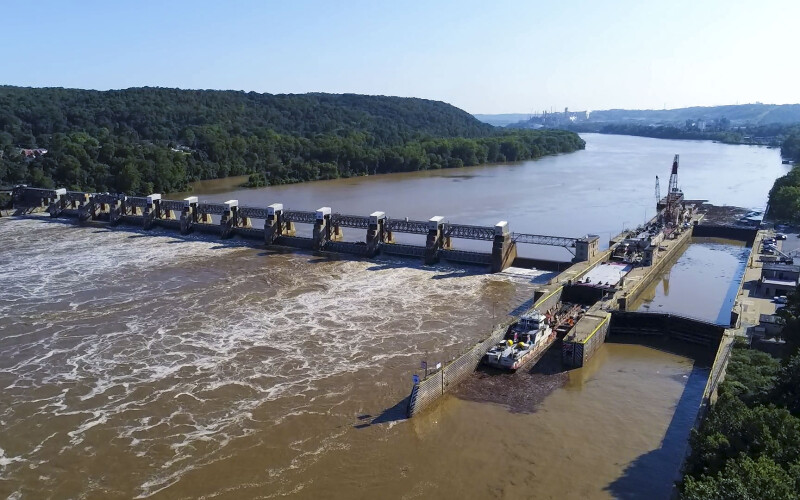The U.S. Army Corps of Engineers has released a comparatively austere Fiscal Year (FY) 2025 Work Plan that includes $200 million for inland waterways construction — less than half what it received in FY 2024. Nearly $50 million is to come from the Inland Waterways Trust Fund, which is funded through a 29-cent-per-gallon diesel fuel tax paid for by commercial operators on the inland waterways system.
Funding for the Corps’ Civil Works mission is typically included in the annual Energy and Water Development appropriations bill.
Commercial operators are the only users of the inland waterways system to pay a tax for new and major rehabilitation of inland navigation facilities. In fact, a 2024 National Waterways Foundation-commissioned study by Eno Center for Transportation highlighted the multitude of non-navigation beneficiaries of the U.S. inland waterways system. Federal support for inland waterways yields societal benefits in a variety of areas besides commercial freight transportation. The report describes 14 benefits within three sector areas: economic development; energy and sustainability; and safety, security, and resiliency.
The FY25 Work Plan’s $200 million for lock construction is significantly down from the record level funding of $456 million in FY 2024 and is well below the Corps’ aspirations for inland construction projects in FY25. But, because regular appropriations were not enacted, the full-year Continuing Resolution that is currently funding the federal government, while based on FY24 levels, does not guarantee specific programs within the Corps’ Civil Works mission will receive financing in FY25.
The Corps selected the following inland waterways construction projects to receive funding in FY25:
- Montgomery Lock (Ohio River) - $44 million to continue work on the project;
- Chickamauga Lock (Tennessee River) - $32.19 million to continue work on the project;
- T.J. O’Brien Major Rehabilitation (Calumet River, part of the Illinois Waterway) - $122.9 million to close out construction of the project.
In addition, the Corps has targeted $2.4 million for an inland waterways study for Bayou Sorrel (Gulf Intracoastal Waterway) that would complete the feasibility phase of the project.
While Waterways Council Inc. (WCI) was disappointed with the funding levels for Chickamauga and Montgomery Lock construction projects, a zero-dollars allocation in the FY25 Work Plan was a distinct possibility. Further, the Bayou Sorrel funding was a very welcome win in this Work Plan because it puts that project one step closer to a director’s report, a final recommendation from the Corps on lock replacement to address navigation and flood risk objectives.
At press time, WorkBoat was awaiting the release of the president’s FY26 budget. WCI is urging Congress to pass a timely FY26 appropriations bill to ensure that ongoing navigation construction projects continue without delay. Let’s finish these critical projects as soon as possible to return transportation cost savings to the nation.




